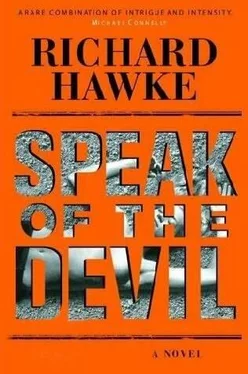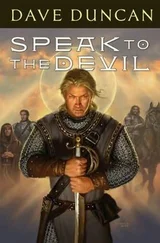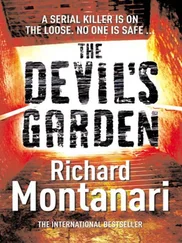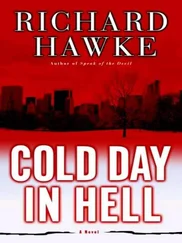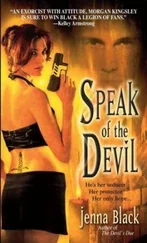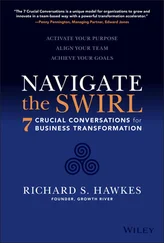Byron took a moment before responding. “We’ve discussed that. But we feel we have no choice. The mayor has to protect the citizens of this city.”
We reached the entrance and made our way up an enclosed winding stone walkway to the admissions desk. “Mr. Small,” Byron said to the woman at the desk. “He’s expecting us.”
She indicated an arched doorway past the gift-shop entrance. “Right through there.”
I followed Byron through the arched doorway and up a short flight of stairs. The museum’s offices were at the top of the stairs. A bespectacled man with thick gray hair was waiting for us. He took us into a small office. Byron introduced us. He was Gerald Small, director of the Cloisters. Mr. Small was wearing a gray wool suit and a red-striped tie. He looked like he was bravely toughing out a migraine.
“I’m not happy with this,” he said immediately to Byron. His voice was nasal and grating. “I don’t enjoy being left in the dark. I want to be on record with that.”
“There is no record, Gerald,” Byron replied coolly. “But I hear you. And the mayor appreciates your cooperation.”
“Appreciation is one thing. You were a little more specific when you called me.”
Byron offered a reassuring tone. “The mayor keeps his promises, Gerald. Mayor Leavitt is very enthusiastic about the museum’s restoration initiative. You can depend on seeing the fruits of that enthusiasm.”
“Fruits of that enthusiasm,” I repeated. “I like that.” My enthusiasm was blandly received by both men.
Gerald Small retrieved a burgundy jacket from atop his desk and held it out to me. I removed my checked jacket and put on the burgundy one. It was a little tight across the shoulders but not so bad. From my pants pocket, I pulled out a small folding mirror and a neatly trimmed false mustache with gummy webbed backing. I affixed the mustache to my upper lip, checking in the folding mirror to see that it was on straight. From my shirt pocket, I produced a pair of black-framed glasses. I put them on, removed the Yankees cap, gave my flattened hair a finger-combing against the grain, then turned to Philip Byron. “Presto change-o.”
“Where’s the bag that was left on Wednesday?” Byron asked Small. The museum director opened a small coat closet and pulled out a black canvas backpack. It was a little larger than the green JanSport. Byron took the backpack and unzipped it.
Across the top of the note retrieved from the Gristedes had been typed: NOW THAT I HAVE YOUR ATTENTION. The note instructed that a million dollars in hundred-dollar bills be bundled and delivered to the Cloisters by Saturday afternoon. The money was to be transferred into a bag that had gone unclaimed earlier in the week. The claim number on the bag was 16. The bag and the money were to be returned to the coat-check room by noon on Saturday and stowed in cubby number 16. The note included the instructions to the mayor about the green tie, the word “Wisconsin” and the warning that any deviations from the instructions or attempts to detain or pursue the person claiming the bag would result in “more public blood.”
It was now nine-fifteen.
After the museum had closed on Friday night, a team of technicians had arrived and installed a new set of security cameras, one for each of the Cloisters’ two entrances and one in a large wicker purse that had been strategically placed in one of the cubbies in the coat-check room. I had my doubts that the Cloisters’ hastily installed cameras were going to capture anything other than another disguise. But I wasn’t running that part of the game, so I kept quiet. In addition to the technicians who installed the cameras, an explosives expert had made the trip up to the Cloisters on Friday evening and inspected the unclaimed bag. It was clean.
We transferred the money to the black bag and made our way to the coat-check room, where Gerald Small explained the system to me. “You clip a number to the bag or the coat or whatever it is they’re checking. The bags you put in order in the cubbies. The coats you hang in order on the rack. You give the customer the plastic tag with the corresponding number.”
“I think I can handle that.”
“It’s very straightforward.”
“Do I accept tips?”
“No tipping.”
“Shucks.”
Officer Kevin McNally was being buried with full police honors at noon, and the mayor and Byron were attending. The operation was now officially in my hands. Before leaving, Byron told me that the undercover cop inside the museum was wearing a Giants jersey. Number 08. This isn’t how numbers appear on Giants jerseys, so the chances of a second person showing up at the Cloisters wearing Giants jersey number 08 were essentially zilch.
Comforting.
The museum opened at nine-thirty. I fielded about a dozen customers right off the bat, and then a lull set in. The steadier stream began around ten-thirty. A Saturday madrigal program was being conducted in one of the galleries at eleven.
From my vantage point, I had an uninterrupted view of the entrance nearest me and a partial view of the one across from the admissions desk. From that entrance, if a person wanted, he or she could go directly into the gift shop before paying admission. I looked around and found the newly installed security cameras, but I couldn’t tell if they were calibrated to take in the gift-shop entrance.
I handled my duties admirably. Seems I was born with all the right skills. My anonymity threw me a little at first; 90 percent of the people handing over their coats or bags looked right through me if they looked at me at all. But I assisted in their indifference with equal doses of my own. I was there to blend in, not stand out. One person, a fat boy with black bangs, tried to draw me out as he handed over a heavy brown coat-“Hey! Do you like white meat or dark meat?”-but his mother, nearly his twin in a scary way, snapped at him to shut up.
Just before eleven o’clock, I was engaged a second time. A jean jacket was thrust at me, accompanied by something small wrapped in white paper.
“Here you go, Mac.”
“What’s this?” I muttered without moving my lips.
Jigs Dugan offered his shit-eating grin. “Hot dog. Thought you’d be hungry.”
I let the hot dog fall into a wastebasket at my feet. I took the jean jacket and gave Jigs his number.
“Thanks.” He pulled a dollar from his pocket. “Where’s your tip cup, Mac?”
“We don’t accept tips… sir .”
“I’d join a union if I were you, Mac.”
“Go away,” I muttered.
Jigs shoved his fists together and cracked his knuckles. The scar on his right cheek hooked as he sneered at me. “They got paintings of naked women here, Mac?”
“If you’re lucky, you might find a cherub. And you can quit with the Mac already.”
Jigs drew my attention to the pager on his belt. “You need me, bubba, you just whistle,” he said in a low voice. A tall man was stepping up behind him, shrugging out of a long black Burberry coat.
“The madrigal program is starting in a few minutes, sir,” I said stiffly and loudly to Jigs.
He put on a sage face. He was completely aware of the man waiting behind him. “Madrigals? Well, that’s good. Can’t get enough of those madrigals this time of year, right?” He turned and bumped purposefully into the tall man. “Oops. Sorry, there, Mac.”
The man had nearly a foot on Jigs. He gave him a pissed-off look. Of course, he had no way of knowing that the first person Jigger Dugan ever killed had given him one of those looks. The third one, too, if I have my stories straight.
HIGH NOON ARRIVED. HIGH NOON PASSED.
The cop with Giants jersey number 08 made several passes in view of the coat-check room. People drifted in from the direction of the gallery where the madrigal program had just ended. A few of them came directly for their coats and bags. Nobody handed me number 16.
Читать дальше
